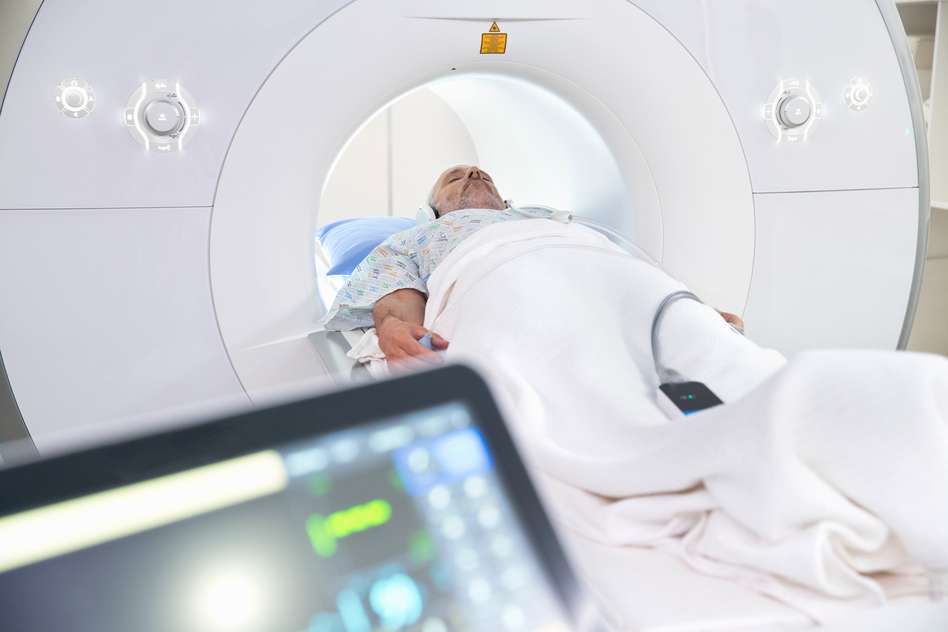medical negligence
Delayed diagnosis and the role of X-rays, CT scans and MRI scans in medical negligence claims

Radiology, including X-rays, CT scans and MRI scans, is a routine part of healthcare used to identify problems, guide treatment and exclude potential diagnoses. Failures in radiology services can unfortunately lead to failures in identifying potential abnormalities and delayed or misdiagnosis.
Our medical negligence solicitors are experts at dealing with claims resulting from delayed diagnosis, failure to diagnose and misdiagnosis. The team also handles cases involving failures to identify or report on suspicious or abnormal features following an X-ray, CT scan or MRI scan, and failure to make appropriate recommendations for referral.
Sadly, we are seeing a rise in delayed radiology cases as a direct result of the ongoing pressure on the NHS and some underlying factors impacting the delivery of imaging services, resulting in life-changing consequences for patients and their families.
How do delays to scans occur?
When a patient is referred for an x-ray, MRI or CT scan there should be a set time frame within which this is carried out, depending on the reason for the referral. Unfortunately delays in referrals and failings in communication between different departments and health providers can mean that these targets are not met, leaving the patient with a potentially delayed diagnosis.
Once the imaging is undertaken it is then reviewed by the relevant clinician, and a report is prepared. Where possible, images should be compared to any previous order to highlight developments and changes over time, although a clinician’s ability to do this is reliant upon previous imaging being available to them at the right time.
Claims resulting from the failure to identify suspicious features leading to delays in diagnosis of health issues such as cancer have devastating consequences and in some cases have led to the avoidable death of a patient.
Once the scans have been reviewed, any abnormal findings should then lead to referral to further investigation or treatment. Again, delay at this point is a frequent and potentially significant problem, as miscommunications between departments and systems or flagging errors occur due to many different factors.
What is the impact of delayed diagnosis following a scan?
Delays in diagnosis as a result of poor radiology practices can be devastating particularly in cases where patients are suffering from conditions or diseases where timely diagnosis and treatment is of paramount importance, such as cancers or acute respiratory events.
It is not unusual for there to be a number of errors throughout the process, each representing a missed opportunity for earlier diagnosis and treatment, which can ultimately lead to lengthy delays in diagnosis and treatment.
Our medical negligence team has recently dealt with cases involving:
- A 7 - 22 month delayed diagnosis of lung cancer following a failure to arrange correct imaging in November 2018 and to follow up abnormalities identified on imaging in March 2019 and February 2020. Diagnosis was not made until September 2020.
- Incorrectly reported ultrasound undertaken by an outsourced radiology provider in November 2018, as a result of which the patient suffered a delay in diagnosis of colorectal cancer between approximately November 2018- May 2019 which impacted upon her treatment options and life expectancy.
- Failure to identify a lung lesion as suspicious for malignancy on a CT scan and negligently reporting the lesion as a benign pleural cyst. The scan was undertaken at an NHS hospital but the reporting was outsourced to an outside company. As a result, the patient suffered a delay in diagnosis of around 11 months leading to the progression of his disease and denying him the opportunity for curative treatment- ultimately his death could have been avoided.
- Failure to identify an abnormality on a chest X-ray and to refer for further investigation. As a result the patient suffered a delay in diagnosis of lung cancer of around 8 months, leading to a loss of life expectancy of around 10 years.
- Failure to report a hepatic flexure tumour on CT scans in both June and November 2018. Potentially a further failure to miss an abnormality in November 2017. As a result, our client had a delay in diagnosis of colorectal cancer for 16 months, potentially 24 months.
- Failure to refer for appropriate follow up after identifying a vestibular schwannoma (auditory benign tumour) leading to a delay in informing our client of this finding and putting a treatment plan in place of 21 months. As a result of this delay, the tumour grew and our client developed hydrocephalus with associated balance, continence and cognitive symptoms, required admission to hospital for around a month, developed permanent facial palsy with associated visual, cosmetic and speech issues, required shunt insertion surgery and was unable to undergo standard radiotherapy treatment.
What are the factors leading to medical negligence claims relating to radiology?
- a concerning shortage of radiologists in the United Kingdom. With radiology services often stretched and under pressure to achieve quotas and targets, the risk of human error increases
- systems errors and poor referral methods. Different hospitals, health centres and departments frequently use different systems and referral pathways, making delays and missed requests more likely
- outsourcing of radiology. Due to the lack of radiologists a number of NHS Trusts have begun to send imaging to external companies for review, some of which are outside of the UK. Issues in reporting standards in outsourced reports seem to be increasing, and there are additional problems in ensuring the external radiologist is provided with the correct supporting medical records and previous imaging
- lack of correct equipment, equipment errors or cost constraints on how many patients may be referred for imaging
A recent report by the Parliamentary and Health Service Ombudsman (PHSO) has shown recurrent failings in the way radiology is reported on and followed up across NHS services, and the PHSO has written to the Government recommending urgent improvement to NHS imaging services be implemented as a priority.
Some important things to consider if you require radiology services
It can be difficult for patients to avoid errors as predominantly it is the reporting of the radiology which is the issue, however there are some practical tips to consider if you find you require radiology:
- If referred for radiology ask what the timeframe for this should be and which hospital and department the referral will be made to
- Re-iterate your symptoms to the clinician carrying out the imaging, and let them know if anything has changed since your referral
- When discussing the results with your clinician, ask whether there were comparisons to any previous imaging or any ambiguous findings
- If you are concerned that there has been an error in the reporting of your imaging flag this to the clinician and ask for an immediate review
- If you are referred for further investigation or treatment following radiology check what the timeframe for this should be, when you should hear further, whether you need to make an appointment yourself, and who the referral will be made to
Here at Tees we are experienced in dealing with a range of claims relating to issues in radiology, and work with a number of eminent independent experts to ensure that no stone is left unturned in investigating the standard of care provided.
If you are concerned that there were failings in your care or potential delays to your treatment as a result of issues or errors in radiology we work on a no-win, no-fee basis, and would be happy to discuss your experience. We’re here to help.
Call for a FREE initial consultation on 0800 013 1165
Tees are here to help
We have many specialist lawyers who are based in:
Cambridgeshire: Cambridge
Essex: Brentwood, Chelmsford, and Saffron Walden
Hertfordshire: Bishop's Stortford and Royston
But we can help you wherever you are in England and Wales.
Chat to the Author, Isobel Foenander
Senior Associate, Medical Negligence, Bishop's Stortford office
Meet Isobel
- Areas of expertise
- Testimonials
Anonymous
All the members of Tees' legal team were very professional. Isobel in particular was absolutely wonderful, she was engaging and always responded promptly. I was kept informed all the time, explaining everything very clearly. I am so pleased to have worked with her.
Anonymous
Bishop's Stortford
'I appreciate everything you’ve done and continue to do for me right from the first time we spoke'
Anonymous
Bishop's Stortford
'A positive outcome. Thank you for all your support and kindness. I finally have closure'
Anonymous
Bishop's Stortford
'I feel a real sense of closure which I am hoping will help to improve how I feel about the whole thing. I can't thank you enough for all the hard work you have put in'
Anonymous
Bishop's Stortford
I absolutely trust your judgment.
Anonymous
Bishop's Stortford
'It has been a great help to me mentally to be listened to and taken seriously. Your service has been very impressive'
